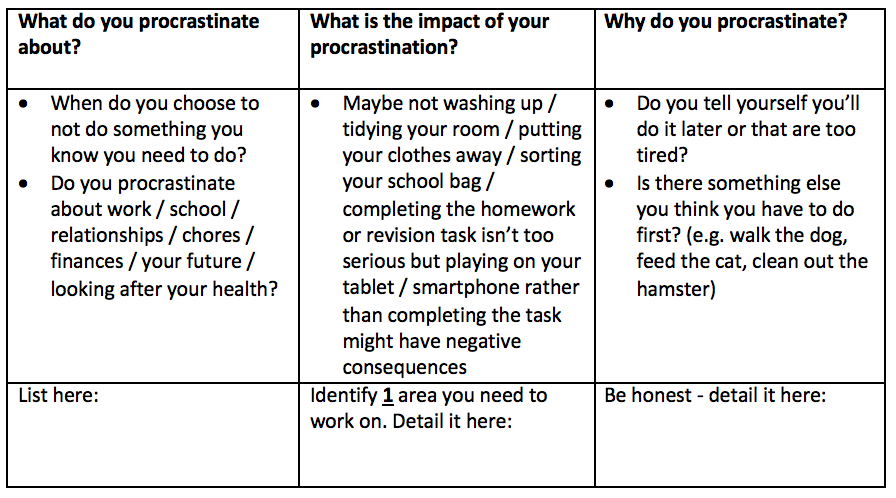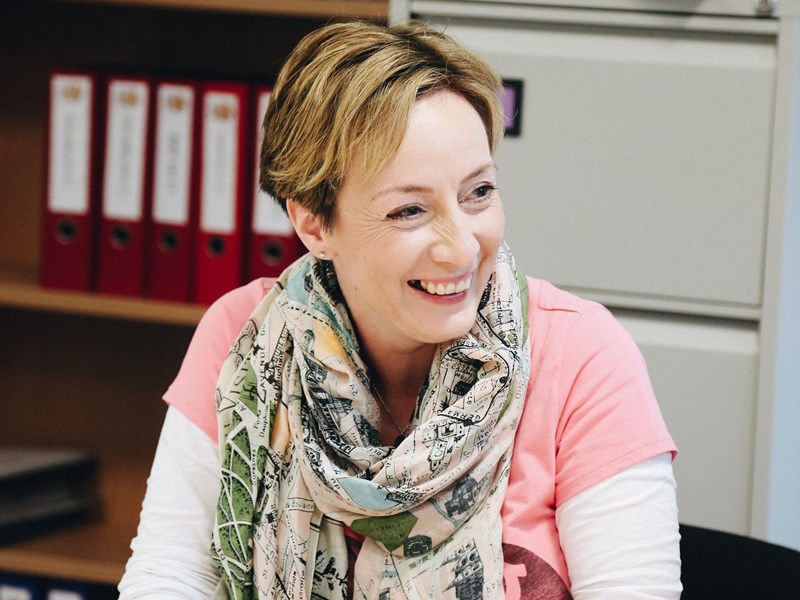Five Ways to Help Students Overcome Exam Stress and Anxieties
Associate Crista Hazell shares her tried and tested techniques for helping students get their best head in the game
In education, we are in the business of helping students to be the best that they can be.
Every day we strive to improve and develop understanding of quadratic equations, of forming the passé composé of irregular verbs with precision and accuracy, to forming meaningful relationships and being tolerant of differences and diverse lifestyles.
All in all, we all do our best to make sure students have the knowledge they require to decipher exam papers and ‘do well’.
But before we get to that stage, we need to ask ourselves whether we providing our young people with the necessary skills to regulate their own thinking so they can stop, think and deal with the challenges they face at school, in life and at home?
Schools are doing their utmost to develop well rounded students but the following are a few ideas I've used with my students to help them overcome their fears and stop worries in their tracks.
I’m fairly certain that teachers and school leaders may find these useful too.
1. Overcoming Worry
Everyone worries.
It is normal to worry, telling students that its ok to worry and, that everyone does it might allow feelings of relief all around, however that doesn’t help it to stop, nor control it so any relief will be short-lived.
Controlling worry is the key to keeping anxiety at bay.
Helping students to confront their worries through a simple activity will help them to acknowledge, control worry and master it.
By allowing time to think about their specific worry but ask themselves ‘Is it a current worry that I can do something about?’ (Allow thinking time please).
There is a simple 'Yes-or-No' response to that question.
If the answer is ‘no’ then the worry is hypothetical and we should direct them to a distraction technique to encourage them to stop worrying about something they are unable to do anything about.
Distraction techniques could be a physical activity (sport, running, bouncing a ball against a wall, walking the dog or playing football with a sibling) a mental activity (a puzzle, crossword, Sudoku, playing a card game, counting backwards, playing a musical instrument or singing a song, painting or drawing, a craft activity) or simply a focus activity seeking out specific details whilst looking out of a window — what do you see? Count ten blue items, ten red, ten green etc...
These allow the focus to shift from worry on to other things, allowing the mind to rest, the worry to dissipate and will prevent overthinking and negativity.
If the answer is ‘Yes’ then this is an actual worry, so a different technique is required, one that will solve or at least help to solve the problem.
Most people tend to like solving problems if given time to think about the array of potential solutions.
Example — I have so much work to do plus everyone is moaning at me for not being tidy.
The solution requires time and careful thought. There are a series of steps to complete before arriving at the best solution for the cause for worry:
-
-
- Step 1 — Identify the problem
- Step 2 — Identify the possible solutions
- Step 3 — List the pros and cons for each solution
- Step 4 — Create an action plan
- Step 5 — Implement the action plan
- Step 6 — Review the plan and make amendments/changes
-

2. Thinking - Changing the Negative Into a Positive
Perspective is everything and if we're in a negative mindset then we will never perform at our best.
Steering students towards a more positive and healthy way of thinking will always be a challenge but if we provide students with tools to help them help themselves we might avoid the downward spiral of negative thoughts thus keeping perspective.
Ask students to consider the following questions:
-
-
- Is the thought (being worried about) fact or opinion?
- Is there an alternative interpretation of the situation?
- What would a friend say faced with this situation?
- Would I see this differently if I wasn’t feeling stressed / tired / under pressure?
- Am I over-estimating the worry?
- Am I underestimating my ability to cope / deal with this?
-
The realisation that thoughts are opinions rather than facts can be mind-blowing for some, but it might help avoid the vicious downward spiral of negativity, worry and anxiety.
Challenging thoughts in this way enables calm and perspective to take charge, improving responses to difficult/worrying situations.
3. Procrastination
Putting off something we have to do despite the potential negative consequence; this is procrastination.
Social media, YouTube and games on smart phones and tablets are popular havens for procrastinators.
Ask students to think about the following completing the activity:

Allow students to think carefully might help them to overcome procrastination.
Repeating this activity at the start or end of a lesson or registration/tutorial session might help remind them to not procrastinate.
Experience informs me that they will find their own solutions to overcoming procrastination such as:
-
-
- Write a list of tasks to be completed
- Prioritise the list (by date/by consequence!)
- Consider potential obstacles/challenges they may face and have to overcome
- Set SMART goals
- Allocate a maximum time limit to complete each task
-
4. MAGIC Activities
MAGIC activities allow the focus to be broken from worry and tasks for a period of time which can only be refreshing and revitalising yet few have heard of this or indeed practice it.
Beautifully simple, MAGIC activities allow worry to be put aside in the completion of these activities; they are brilliant distractors.
Students could be directed to complete five MAGIC activities per week, or one per day. This will help find balance and time to breathe before continuing with the prioritised tasks previously identified.
M for Mindful
Pay attention to your surroundings, your feelings, your emotions and sensations when you do an activity.
A for Active
Move more; go for a walk, do some physical activity or spend some time on a neglected hobby.
G for Generous
Show kindness and generosity to someone else by doing something nice for a friend, family member, carer, neighbour. Perhaps help out a friend or family member — it could be as simple as a phone call to help someone smile, by doing the washing up or walking the dog. It could be as simple as a smiling and acknowledging the presence of someone else and holding the door open for them as they pass by.
I for Interested
Be interested in the world around you, challenge yourself to learn something new through watching a YouTube video or reading up about something you heard, read more or develop new knowledge or skills.
C for Connected
Stay connected to family and friends, talk to people and develop relationships.
5. Finding Balance
The rollercoaster of life is exhilarating and finding balance is crucial to success for any of us.
We can’t work ourselves to the point of exhaustion yet at our best.
It is our job to ensure that students find balance too through building resilience or ‘bounceback-ability’.
Failure isn’t a dirty word and getting things wrong isn’t a crime. We have to embrace this and not ridicule it or shy away from it as we help students learn from it.
Edison’s quote of ‘I have not failed. I’ve just found 10,000 ways that won’t work’ fits beautifully here as does Winston Churchill’s ‘Success is not final, failure is not fatal; it is the courage to continue that counts’.
As a race, humans build resilience through developing positive relationships with others.
We should ensure healthy, supportive and respectful relationships feature in our students' lives and, as professionals, we must model these at all times, providing support, opportunities for development and understanding through professional conduct.
Ultimately finding balance is a lifelong quest but if we consider the elements outlined above I’m certain we can all help our students, and ourselves, achieve it.
For more from our CPD Jukebox, click here. [ITL]

To find out more about booking Crista Hazell for your school, college or organisation call us on 01267 211432 or drop us an email on learn@independentthinking.co.uk.
Enjoy a free no-obligation chat.
Make a booking. Haggle a bit.
Give us a call on +44 (0)1267 211432 or drop us a line at learn@independentthinking.co.uk.
We promise to get back to you reassuringly quickly.

About the author
Crista Hazell
Crista is an experienced teacher and tutor and a leading figure in the UK languages teaching scene. She is the author of Independent Thinking on MFL.